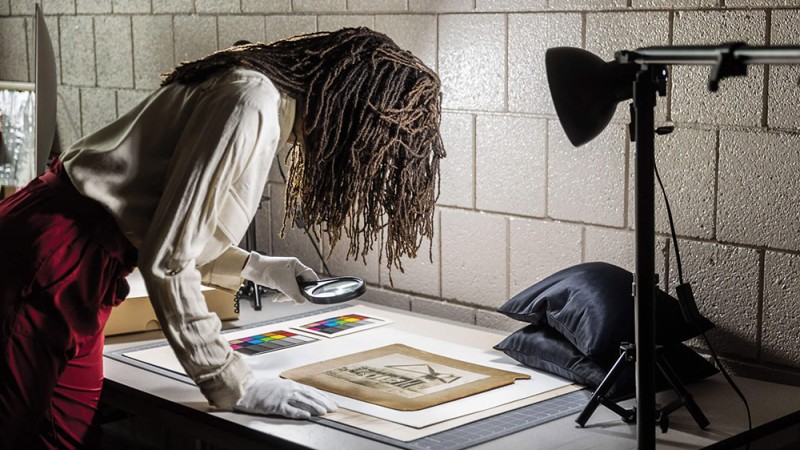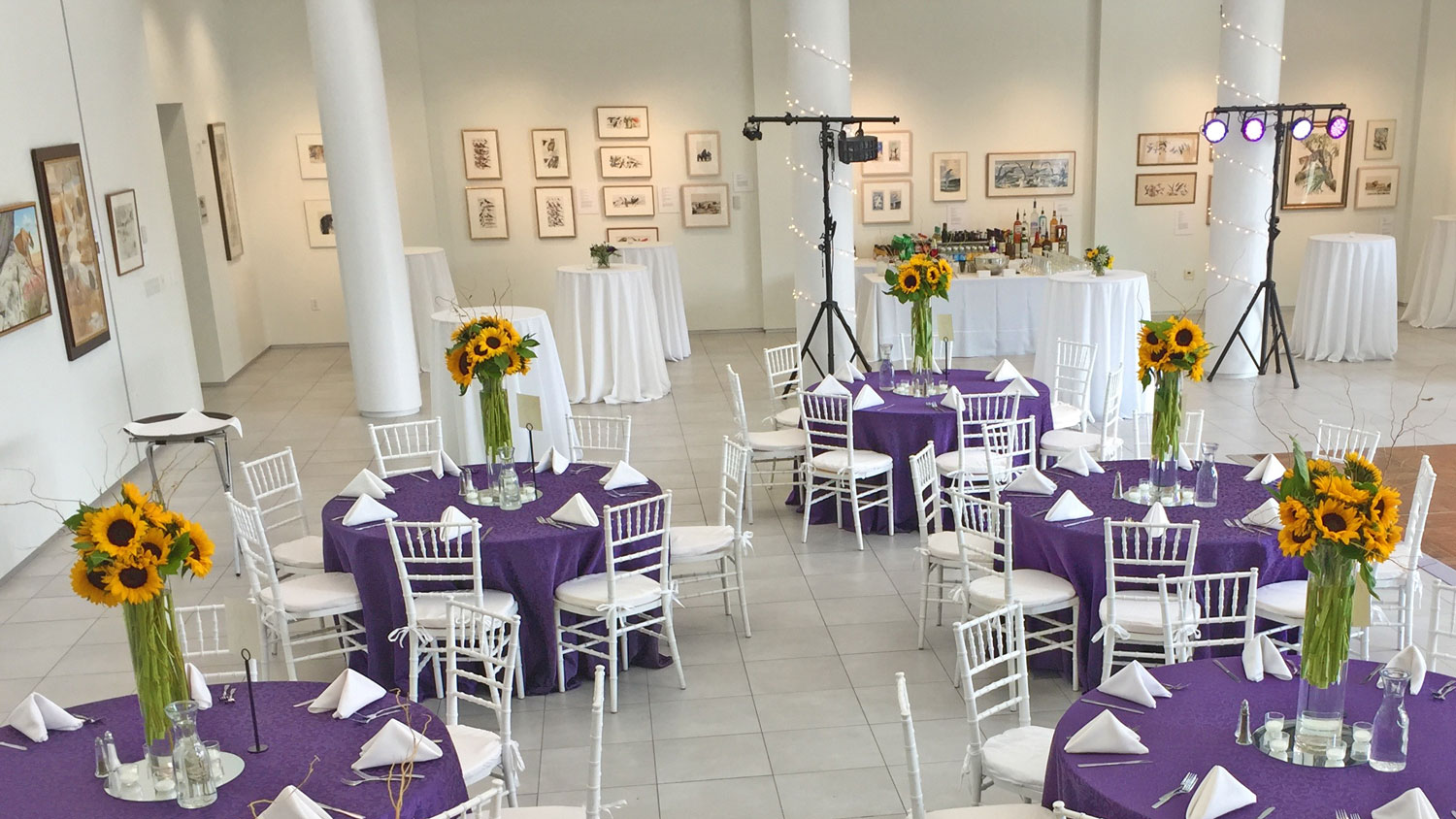Department of History


Department of
History
- RIT/
- College of Liberal Arts/
- Academics/
- Departments and Schools/
- Department of History
Overview
The Department of History offers minors and immersions that promote broad perspectives on human experiences, teach critical appraisal of primary and secondary sources, develop communication and writing skills, and enable you to make comparisons and draw contrasts across global historical perspectives—all skills that are essential in a wide variety of professions, including business, education, journalism, law, politics, and public service. We are a tight-knit department with faculty who have a wide variety of professional and scholarly interests, from the history of gender to the history of computing, from the history of Asia to the history of the United States, from the history of imperialism to the history of baseball.
10
Faculty in the department
68
History courses offered
9
Geographical and historical areas of study
Latest News
-
February 12, 2025

RIT College of Liberal Arts Announces Dean’s List for the Fall 2024 Semester
The RIT College of Liberal Arts is proud to share its fall 2024 semester Dean's List and recognize undergraduate students for their outstanding academic performance.
-
February 12, 2025

Interdisciplinary collaborations drive innovation in cultural heritage preservation
RIT’s interdisciplinary collaborations enrich research across the university and beyond. Two of these collaborative projects recently received funding from the National Endowment for the Humanities as part of a total $22.6 million in grants given to support humanities projects across the nation.
-
December 12, 2024

Designers leave nothing on the table during the Beyond Fashion showcase
Decked out with technicolor lights and vibrant animated displays, RIT’s MAGIC Spell Studios soundstage became a runway last week during Beyond Fashion. The rainbow runway featured a diverse collection of garments and wearables crafted by local designers and RIT students across multiple disciplines.
Featured Work and Profiles
-
Historians Put Today’s AI to Work to Better Understand the Past
From medical devices to economic forecasting tools to writing and editing assistants and more, artificial intelligence is playing a role in nearly every industry and activity of contemporary life, but...
Read More about Historians Put Today’s AI to Work to Better Understand the Past -
Graduate Exploring New Frontiers in Museum Studies Through Fulbright Award
Izzy Moyer Museum studies graduate Izzy Moyer returns to Croatia as a Fulbright awardee, leveraging her expertise with RIT's Multispectral Imaging System to support The State Archives and inspire future museum...
Read More about Graduate Exploring New Frontiers in Museum Studies Through Fulbright Award -
Lecturer Empowers Voices of the Past in a Traveling Exhibition
Samaya Nasr RIT lecturer Samaya Nasr plays a pivotal role in an award-winning exhibition that highlights the often-overlooked narratives of diverse communities in the American West.
Read More about Lecturer Empowers Voices of the Past in a Traveling Exhibition -
Melissa Sagen
“My professors each encouraged my passion for film preservation in their own unique ways. It was meaningful to have that type of positivity and reassurance while I was discovering how I fit in and...
Read More about Melissa Sagen -
Professor Receives Award for Her Book on Polio Survivors in France
Rebecca Scales Dr. Rebecca Scales, a history professor at RIT, has been awarded a Miller Fellowship for her groundbreaking book, “Polio and its Afterlives,” which explores the profound impact of polio on France's...
Read More about Professor Receives Award for Her Book on Polio Survivors in France -
Preserving Lost History
As an archivist, Kayla Jackson '18 is effectively restoring the lost history of the Black community in St. Paul, Minnesota by preserving and digitizing historical documents.
Read More about Preserving Lost History
Undergraduate Programs
A history BS that will prepare you not only to become a historian, but also to succeed in fields as diverse as business, education, government, journalism, law, and public service.
Learn more about the History BS programIn museum studies, you’ll learn how collections are built, curated, and interpreted and you will apply methods of exhibition and interpretation used in museums, archives, galleries, libraries, and public spaces including national parks.
Learn more about the Museum Studies BS programMinors and Immersions
The history immersion provides students with intensive study within the discipline of history. Students may choose to structure their immersion broadly, by choosing a wide range of historical topics to study, or narrowly, by choosing a particular area to study, such as American, European, or Asian history.
Learn more about the History Immersion programThe history minor provides students with a foundation in the academic study of history. It serves as a complement to any professional degree, as historical study at the college level hones the skills that are important to any well-trained professional: namely, effective writing, critical analysis, engaged reading, and logical thinking. Students are free to shape the history minor to their liking, by choosing the geographic areas of historical study of most interest to them, such as American, European, or Asian, or by choosing the historical topic of most interest to them, such as transnational history, comparative history, war, business, race, or gender.
Learn more about the History Minor programThe immersion in museum studies introduces students to the history, theory, and practice of institutional collecting, exhibiting, storing, and preserving our cultural heritage in museums, archives, collections, galleries, and libraries. It also provides students with an introduction to public history, the technical investigation of art, the history and theory of exhibitions, and interactive design for museums.
Learn more about the Museum Studies Immersion programThe museum studies minor provides students with a foundation in the history and practice of the museum as an institution and in the history, theory, and practice of collecting, exhibiting, and preserving the cultural heritage that defines the purpose and function of the museum. Courses cover a wide range of topics that are relevant to contemporary museology: the history of museums and collecting, the technical study of art and materials, the history and theory of exhibitions, interactive design, public history, the rise of the museum profession, legal and ethical concerns, and conservation.
Learn more about the Museum Studies Minor program












